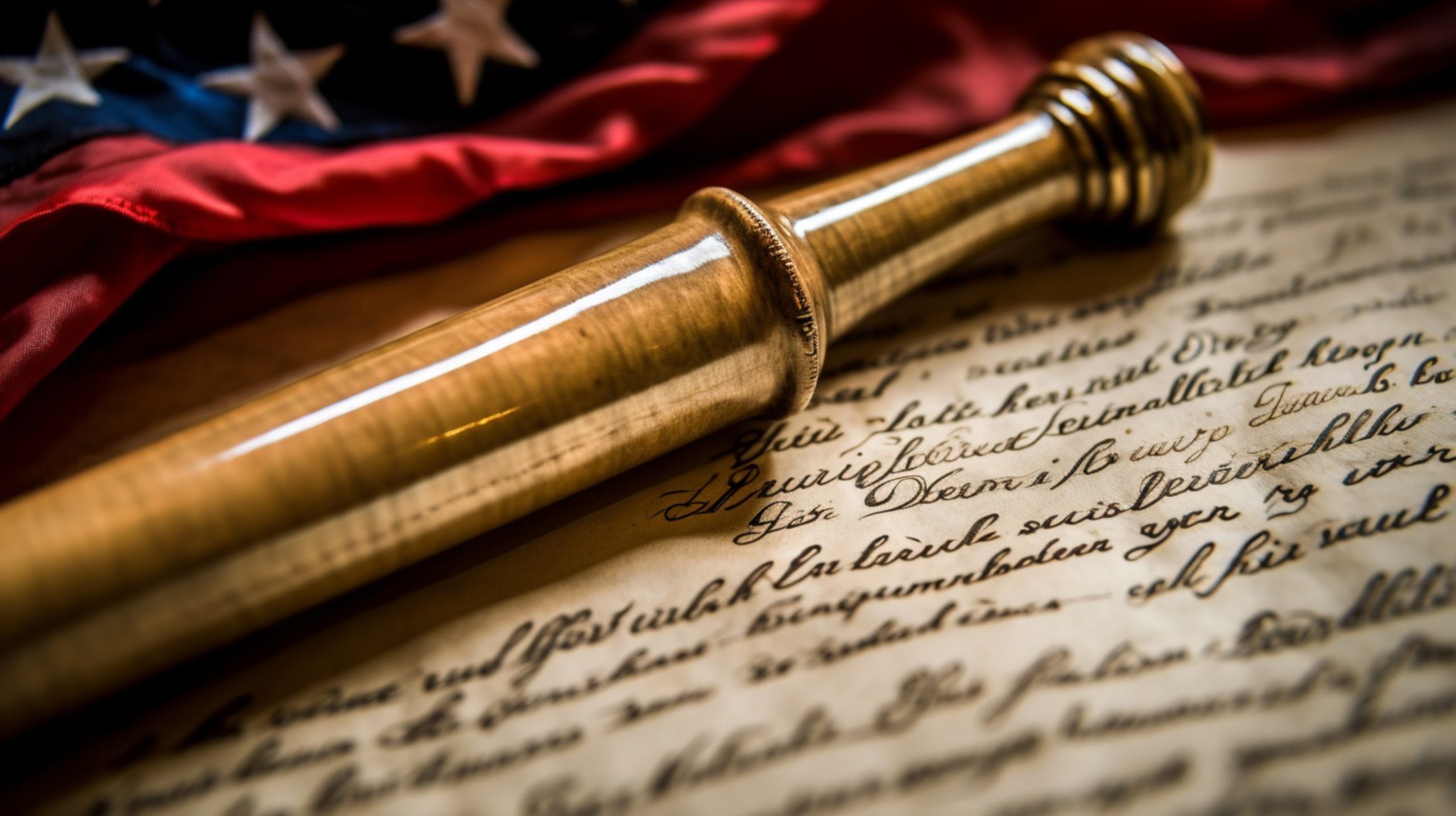1776 - The Constitution of the United States Adopted by the Constitutional Convention

The Constitution adopted by the Convention on September 17,
1787, was signed by all but three delegates and ultimately ratified by
all 13 states. The “Connecticut Compromise” basing representation in
the House on population and providing each state equal votes in the
Senate is embodied in Article I, Sections 2 and 3. The Brearley
Committee can take credit for most of Article II, which creates the
electoral college, defines the powers of the presidency, and provides
for impeachment proceedings. An independent judiciary is created in
Article III, although no mention is made of the power of judges to
declare laws unconstitutional; the delegates regarded that power to be
understood in the wake of Judge Brearley’s Holmes v. Walton decision
and similar cases in other states.
We, the people of the United States, in order to form a more perfect
Union, establish justice, insure domestic tranquility, provide for the
common defense, promote the general welfare, and secure the blessings
of liberty to ourselves and our posterity, do ordain and establish this
Constitution for the United States of America.
Article VI
Certain debts, ect. declared valid, Supremacy of Constitution, treaties, and laws of the United States, Oath to support Constitution, by whom taken. No religious test.
- All debts contracted and engagements entered into, before the adoption of this constitution, shall be as valid against the United States under this constitution, as under the confederation.
- This constitution, and the laws of the United States which shall be made in pursuance thereof; and all treaties made, or which shall be made, under the authority of the United States shall be the supreme law of the land; and the judges in every state shall be bound thereby, any thing in the constitution or laws of any state to the contrary notwithstanding.
- The senators and representatives before-mentioned, and the members of the several state legislatures, and all executive and judicial officers, both of the United States and of the several states, shall be bound by oath or affirmation, to support this constitution; but no religious test shall ever be required as a qualification to any office or public trust under the United States.
